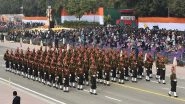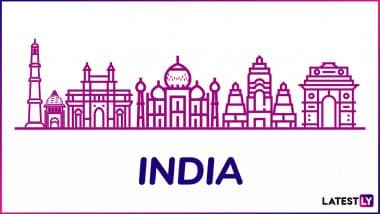New Delhi, Apr 26 (PTI) Vice President M Venkaiah Naidu today pitched for mandatory posting of fresh MBBS graduates in rural areas before granting them their first promotion as part of a possible solution to address the shortage of doctors in the hinterland.
He was addressing the 8th Convocation of the Postgraduate Institute of Medical Education and Research at the RML Hospital here.
The Vice President said that the rural-urban divide in terms of providing effective healthcare services was more pronounced and called for concerted efforts from all stakeholders in the health sector to remedy the situation.
He said that a comprehensive and systematic approach can address these inequities and ensure access to affordable healthcare services in rural areas. He further said that the private sector, NGOs and doctors' organisations can play a bigger and more participatory role in supplementing the efforts of the governments in ending the urban-rural divide.
"To overcome the shortage of doctors, I was wondering if we should make it mandatory for MBBS graduates to work in rural areas before granting them their first promotion," he said, adding rural areas should not be neglected.
Highlighting another area concern, which is affordability of healthcare services and medicines, Naidu said that medical costs are borne by people through out-of-pocket expenditure most of the time and that high treatment costs have virtually forced families into debt trap and reduced them to penury.
Pointing to the low penetration of medical insurance in India, Naidu referred to the government's Ayushman Bharat National Health Protection Mission, aimed at providing universal health coverage through insurance, and said it would protect around 10 crore families from catastrophic healthcare spending.
He also appreciated the affordable medicines and reliable implants for treatment (AMRIT) initiative of the Health Ministry that is drastically reducing the expenditure incurred by common patients on treatment of cancer and heart diseases.
"The aim of the government is to ensure that no person is denied the right to affordable medicines and healthcare. Government is committed to providing universal health coverage to all," he said even as he urged other stakeholders such as private players, NGOs, and civil society organisations to supplement the efforts of the government.
Naidu further said that Swachh Bharat (Clean India) Mission can play a vital role in making a 'swasthya (healthy) Bharat' and referred to the Prime Minister talking about making the mission a jan andolan (people's movement).
Referring to the recent cases of rape of minors, Naidu advocated for the 'swachhta' (cleanliness) of the mind and thoughts and said that bringing in numerous legislations will not address the problem neither indulging in politics and blame-game would, as he stressed on an ardent need to change the mindset of the people.
Awarding degrees to the students, Naidu urged them to maintain highest standards of ethics and morals and never comprise on that. He also urged them not to settle abroad and serve India.
"Never leave your human aspect while treating a patient," he said.
Earlier, Naidu pitched for the rural posting of MBBS doctors while addressing the inaugural session of the 15th World Rural Health Conference with the theme “Healing the Heart of Healthcare – Leaving no one behind”, organised by the Academy of Family Physicians, here today.
He said the rural areas are lagging behind urban areas in terms of medical services and the time has come for India to treat this unhealthy gap in providing preventive and curative medical services in the rural areas on a war footing.
Major bottlenecks in the delivery of an effective healthcare system are low doctor-patient ratio, lack of skilled paramedics and poor infrastructure. To overcome this, there is a need to have strong political commitment and strong advocacy from relevant national and international organisations with the support of nongovernmental organisations, he said at the event.
He also highlighted the need to promote the concept of family doctor in a big way for providing primary and continuing care to the entire family within the communities; addressing physical, psychological and social problems and coordinating comprehensive health care services with other specialists, as needed.
He also called for utilising the expertise of AYUSH doctors in strengthening rural health care.
"With people in rural areas also falling prey to lifestyle diseases like diabetes, cancers and stroke, it has become highly imperative to provide an effective, affordable healthcare delivery services to the rural people. This can be achieved through public-private partnership," he said.
(The above story is verified and authored by Press Trust of India (PTI) staff. PTI, India’s premier news agency, employs more than 400 journalists and 500 stringers to cover almost every district and small town in India.. The views appearing in the above post do not reflect the opinions of LatestLY)













 Quickly
Quickly


